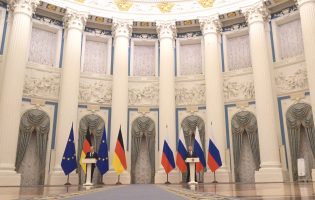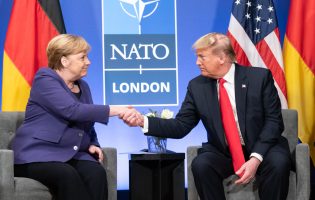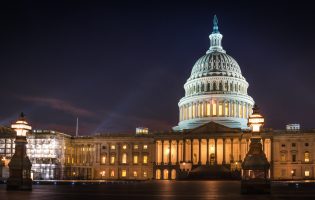Dr. Jonas J. Driedger is a DAAD Postdoctoral Fellow at the Kissinger Center for Global Affairs at the Paul H. Nitze School of Advanced International Studies (SAIS), Johns Hopkins University. At SAIS, Dr. Driedger researches transatlantic options for stability in the neighborhoods of Russia and China. He specializes in the causes of peace and conflict between major military powers and their less powerful neighbors, conflict-averting policy options of third states, the politics of regime survival, deterrence, “hybrid” conflict measures and security cooperation in international relations, with a regional focus on Russia and its relations to its neighboring states, Europe, and the United States.
Mr. Driedger was a Doctoral Researcher at the European University Institute in Florence, Italy. In his dissertation, he assesses the causes of peace and armed conflict between major powers and nearby states with inferior military capabilities. A College of Europe graduate, he was an Alfa Fellow and Visiting Researcher at the Moscow Higher School of Economics. He taught and did fieldwork in Germany, Italy, Ukraine, and Russia. Apart from his academic publications, Jonas contributed analyses and policy advice in German, Russian, and English, including to the George C. Marshall European Center for Security Studies, the Oxford University Changing Character of War Centre, Politico Europe, The National Interest, EUObserver, and EurActiv. His recent article, “Will Russia intervene in Belarus?” was published by the EUIdeas blog.
During his fellowship, Jonas investigated how the Trump presidency had affected U.S.-German security cooperation toward Russia. Were the bitter exchanges between Donald Trump and Angela Merkel indicative of a rapidly widening divergence on Russia? Trump expressed sympathy for Russian president Vladimir Putin, while Merkel, upon Trump’s electoral victory, called for European “strategic autonomy” and made future transatlantic cooperation contingent on adherence to fundamental values. Alternatively, one might well have asked whether these bitter public exchanges covered up that, at the policy level and between key mid-tier policymakers, there was little to no change in how the two countries cooperated toward Russia. These questions were particularly urgent, as Russian conduct was unlikely to become less aggressive. Recent constitutional reforms cemented Putin’s domineering position over Russia and the Kremlin continued assertive policies in Syria, Ukraine, and Western domestic affairs. With the United Kingdom having left the European Union, and France largely focused inward and toward Africa, the United States and Germany emerged as the key linchpin of effective Western policy toward Russia. Managing this relationship well required a thorough understanding of how the Trump presidency had affected it, and what the likely effects of the 2020 elections would be.
The DAAD/AGI Research Fellowship is supported by the DAAD with funds from the Federal Foreign Office.








